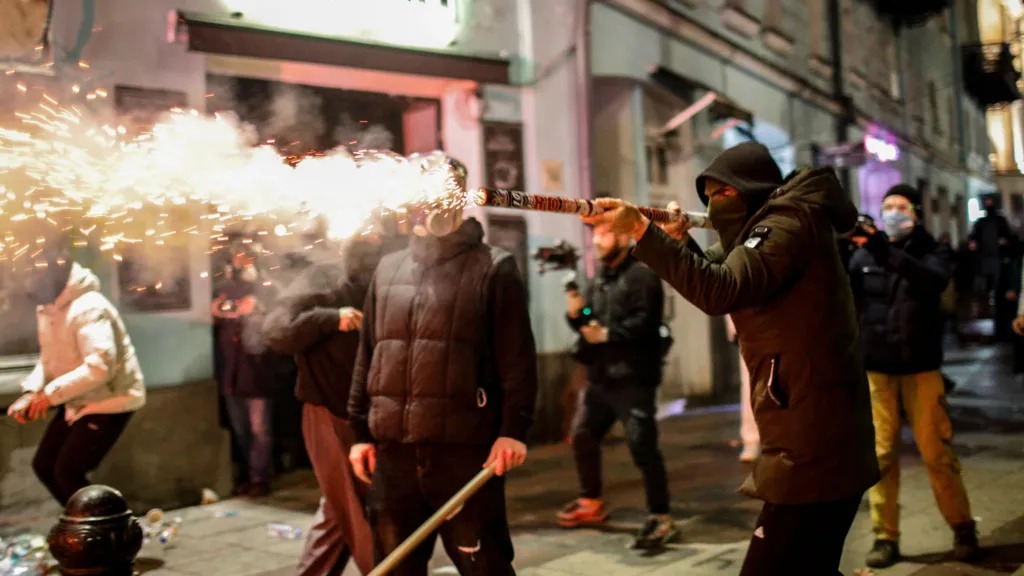
Protesters Condemn Government’s EU Decision
The demonstrations began after Prime Minister Irakli Kobakhidze announced a halt to EU membership discussions until 2028. Protesters view the decision as undermining the country’s constitutional goal of European integration. Chants of “traitors” echoed in the streets as protesters carried photographs of journalists allegedly beaten during the unrest.
Violent Clashes and Growing Resistance
Police reported injuries among 32 officers, while opposition groups claimed multiple protesters were hurt. Social media footage showed journalists from opposition media outlets being targeted despite wearing press identifiers. Protesters like Uta expressed frustration, stating, “We don’t want to be part of Russia anymore.”
EU and International Reactions
European Union officials criticized the government’s decision, calling it a setback for democracy. EU Ambassador Pawel Herczynski labeled the suspension “heartbreaking” and contrary to public sentiment, as polls indicate over 80% of Georgians support EU membership.
Historical and Political Context
Since gaining independence, Georgia has pursued closer ties with the EU and NATO. Critics now accuse the ruling Georgian Dream party of steering the country toward Russia’s orbit. Former President Giorgi Margvelashvili warned of an “unprecedented” crisis that could redefine Georgia’s geopolitical future.
External and Internal Links
- External Link: Read the latest updates on BBC.
- Internal Link: Explore global politics on Kenkou Land.





